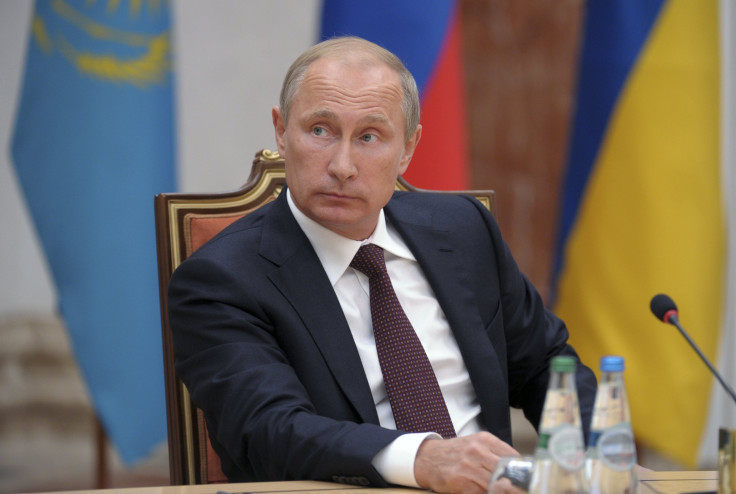EU Imposes New Economic Sanctions On Russia Over Ukraine

(Reuters) - The European Union put into effect on Friday a new round of sanctions against Russia over its role in Ukraine, including restrictions on financing for some Russian state-owned companies and asset freezes on leading Russian politicians.
The EU and the United States have been stepping up pressure on Moscow after its annexation of Crimea in March and what the West sees as an effort since then to further destabilize Ukraine by backing pro-Russian separatists in the east with troops and arms.
The EU has held out an olive branch, however, by saying it could lift some or even all of the sanctions within weeks - if Moscow abides by a fragile truce and respects a peace plan.
The United States has said it will give details of new tougher sanctions on Russia later on Friday.
Sanctions published in the EU's Official Journal on Friday included asset freezes and travel bans on Igor Lebedev and other deputy speakers of the Russian lower house of parliament, Vladimir Zhirinovsky, an outspoken nationalist politician, and a number of leaders of pro-Russian separatists in eastern Ukraine.
Also sanctioned was Sergei Chemezov, described as a close associate of Russian President Vladimir Putin from his KGB days in Dresden. He is chairman of Rostec, a leading defense and industrial group that includes arms supplier Rosoboronexport and a firm that is planning to build energy plants in Crimea.
State-owned Rosoboronexport said it did not expect the sanctions to have an impact on its business.
(Full text: here)
OIL FIRMS
As EU officials have said before, the new sanctions put Russia's top oil producers and pipeline operator, Rosneft , Transneft and Gazprom Neft, on a list of state-owned firms that face restrictions on raising capital on European markets.
EU sanctions do not include the gas sector and in particular state-owned Gazprom, the world's biggest gas producer and the biggest gas supplier to Europe.
Under the EU penalties, firms in the bloc will be barred from providing drilling or well testing services for deepwater oil exploration, Arctic oil exploration or production and shale oil projects in Russia.
Battle-tank maker Uralvagonzavod [URALG.UL], aerospace company Oboronprom [GKROSO.UL], maker of Mil military helicopters, and state-controlled United Aircraft Corp (UAC), which produces MiG and Sukhoi warplanes, are barred from issuing raising new capital in Europe via securities with a maturity of more than 30 days.
Russia's foreign ministry said on Thursday that, by backing new penalties, the European Union had "made its choice against" the current peace road map aimed at ending the worst confrontation between Moscow and the West since the Cold War.
Russian and Ukrainian ministers are to meet EU officials in Brussels later on Friday to discuss trade agreements. Diplomats say the EU will offer Russia more time to adjust to a European free-trade pact with Ukraine that has been the trigger for the conflict and which Moscow fears would hit is exports to Ukraine.
Ukraine's President Petro Poroshenko said the fresh EU sanctions highlighted the support his country was receiving: "I never felt before this level of solidarity," Poroshenko told a conference in Kiev, also citing the pledges of support he received at a NATO summit in Wales last week.
"I feel myself a full member of the European family."
© Copyright IBTimes 2024. All rights reserved.





















